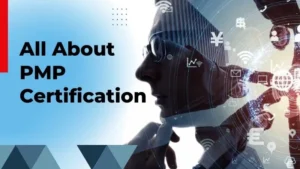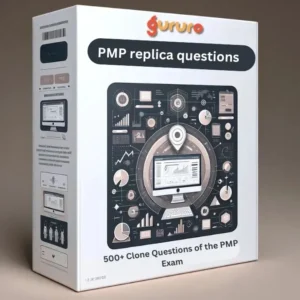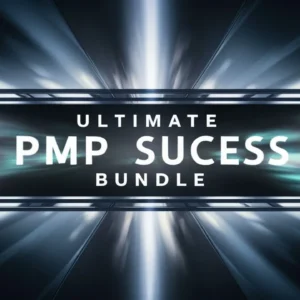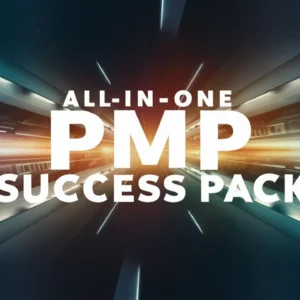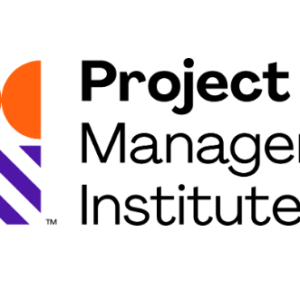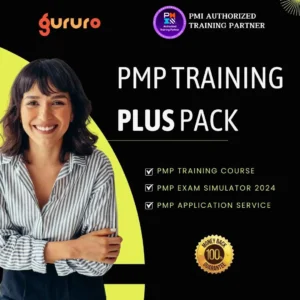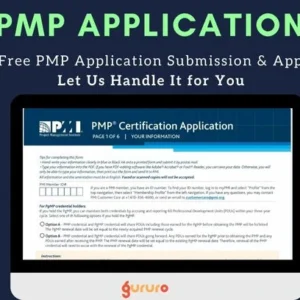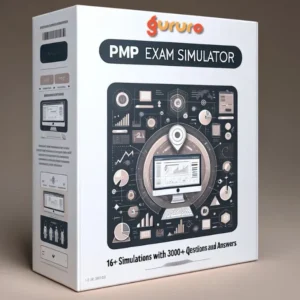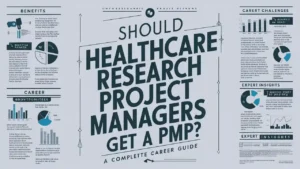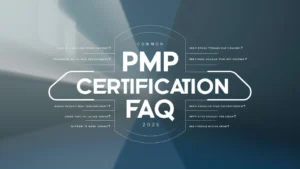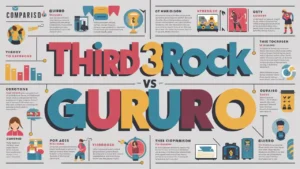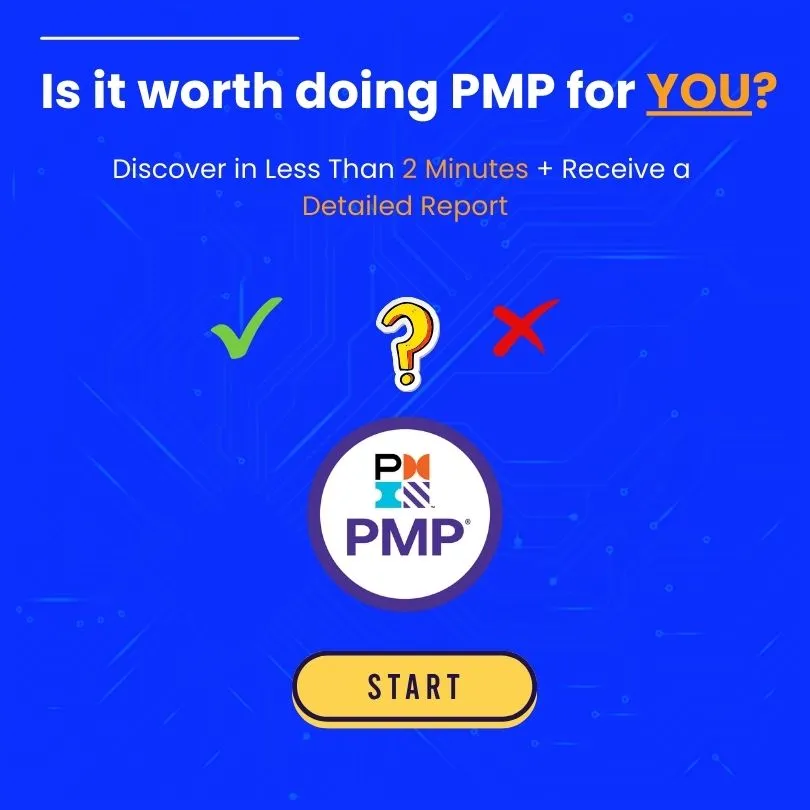In today’s fast-paced business world, being proficient in project management can make you stand out. Among the several certifications available, the Project Management Professional (PMP) certification remains the gold standard. In this blog ” All about PMP certification ” , we’ll dive deep into the PMP certification, offering insights, tips, and guidelines to help you navigate this significant career milestone.
What is PMP Certification?
The PMP certification is a globally recognized credential that validates your capability to manage and lead projects. Offered by the Project Management Institute (PMI), it is particularly sought after in countries like the USA, Canada, India, the Middle East, and Australia.
The Institution Behind PMP: PMI (Project Management Institute)
Founded in 1969, the Project Management Institute, commonly known as PMI, has grown to be the world’s leading not-for-profit professional membership association for the project management profession. With representation in nearly every country around the globe, PMI is a powerhouse in the realm of project management.
Why PMP? Benefits of Being PMP Certified
In the multifaceted world of business, project managers play a critical role. They serve as the linchpin between ideas and their realization, ensuring that projects meet their objectives within constraints like time and budget. Given this pivotal role, having a clear marker of expertise, such as the PMP certification, is of immense value. Here’s why the PMP certification is important for project managers:
- Recognition of Expertise: Holding a PMP certification elevates a project manager’s status in the global community. It acts as a testament to their skills, knowledge, and experience in project management. When employers or clients see “PMP” next to a name, it immediately signifies a certain level of expertise and professional commitment.
- Career Advancement: Many top organizations prioritize or even mandate PMP certification when hiring project managers. A certified PM often stands a better chance at promotions, leading bigger projects, or taking on more significant responsibilities.
- Higher Earning Potential: Numerous surveys, including those conducted by PMI, consistently show that PMP-certified project managers command higher salaries than their non-certified counterparts. This trend is observed across various industries and regions.
- Skill Enhancement: Preparing for the PMP exam requires one to dive deep into the breadth and depth of project management concepts, tools, and best practices. This rigorous preparation inevitably refines and broadens a project manager’s skill set, making them more adept at handling complex projects.
- Staying Updated: The field of project management, like many others, is continually evolving. By maintaining the PMP certification, project managers ensure they are up-to-date with the latest trends, methodologies, and best practices in the industry.
- Improved Project Performance: With the knowledge and methodologies imbibed during PMP training, certified project managers are equipped to drive better project outcomes. They can ensure projects are more frequently completed on time, within budget, and meeting the predefined scope.
- Networking Opportunities: Being a PMP-certified professional often opens doors to global PMI meetings, conferences, and online forums. These platforms are a goldmine for networking, sharing knowledge, and learning from the experiences of peers.
- Global Applicability: The principles taught as part of the PMP curriculum are universally applicable. This means a PMP-certified project manager is equipped to work in any industry, any location, and any methodology, be it traditional, agile, or hybrid.
The Significance of PMP in the Global Job Market
In today’s fast-paced and competitive business environment, the demand for qualified project managers is at an all-time high. Organizations are constantly on the lookout for professionals who can deliver projects on time, within budget, and to the specified quality.
Many organizations seek PMP-certified professionals. As you can see, A basic search with the keyword “PMP” gives around 300,000 jobs in the USA alone.
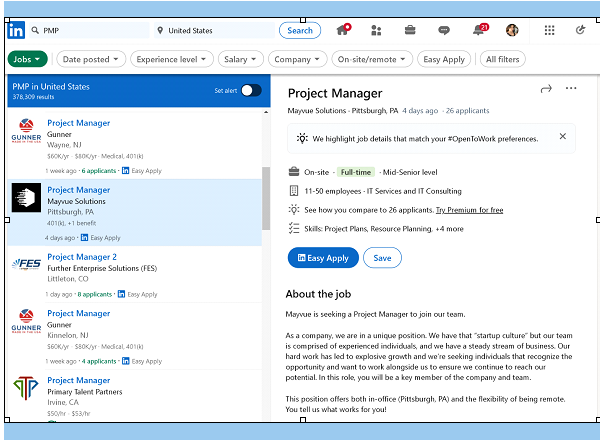
Eligibility for PMP Certification
The Project Management Institute (PMI) has set specific educational and professional experience prerequisites for individuals aiming to achieve the PMP (Project Management Professional) certification. These prerequisites are designed to ensure that candidates possess a foundational understanding of project management practices and have adequate real-world experience leading and directing projects.
Here are the educational background requirements for the PMP certification:
- For those with a Four-Year Degree (Bachelor’s degree or global equivalent):
- Minimum of three years (or 36 months) of unique, non-overlapping professional project management experience.
- At least 4,500 hours spent leading and directing projects.
- For those with a Secondary Degree (High school diploma, associate’s degree, or global equivalent):
- Minimum of five years (or 60 months) of unique, non-overlapping professional project management experience.
- At least 7,500 hours spent leading and directing projects.
Additional Notes
- Non-overlapping experience: PMI emphasizes that the project management experience should be non-overlapping. This means if you worked on multiple projects at the same time, you can only count the time spent on one of those projects towards the eligibility requirement.
- 35 hours of education: The 35 hours of project management education can be achieved through PMI chapters, registered education providers (REPs), third-party institutions, or even online platforms. The content must be related to project management topics to qualify.
- Documentation: It’s crucial to document your educational and professional experience accurately. PMI may select your application for an audit, and you’ll be required to provide proof of your claims, including course completion certificates and verification of work experience.
- CAPM Certification: If you have the Certified Associate in Project Management (CAPM) certification, it can also count towards the education requirement.
The PMP Exam:An Overview
- The exam consists of 180 questions. This includes a mix of multiple-choice, multiple-response, matching, hotspot, and fill-in-the-blank questions.
- The total duration of the exam is 230 minutes (3 hours and 50 minutes).
- There are two scheduled breaks, each lasting 10 minutes.
- People (42%): Emphasizes the skills required to effectively lead a project team.
- Process (50%): Focuses on project management processes, including both predictive and agileapproaches
Study Materials and Resources for the PMP Exam
Earning the PMP certification is a significant achievement for project managers, but the journey requires dedicated preparation. Choosing the right study materials and resources is essential to understanding the depth and breadth of the content covered in the PMP exam. Below are some recommended materials and resources to help you ace the exam:
- PMBOK® Guide (Project Management Body of Knowledge)
⦁ Published by PMI, this is the primary reference and the gold standard for PMP aspirants. It provides a detailed overview of the project management framework, processes, and knowledge areas. - PMI’s Exam Content Outline
⦁ This document offers insights into the topics covered in the PMP exam. Candidates must understand the exam objectives and structure. - Practice Exams and Question Banks
⦁ You can utilize Gururo’s PMP practice exam and simulation which has over 2000+ questions. - Study Groups and Discussion Forums
⦁ Engaging in PMP-focused forums like PMI Chapters, Reddit’s r/pmp, or Project Management Stack Exchange can be beneficial. Here, you can ask questions, share resources, and discuss complex topics with peers and experts. - Reference Books
⦁ Apart from the PMBOK Guide, several other reference books offer insights, tips, and strategies:
⦁ “Rita Mulcahy’s PMP Exam Prep”
⦁ “Head First PMP” by Jennifer Greene and Andrew Stellman
⦁ “How to Pass the PMP Exam on Your First Try” by Andy Crowe - Flashcards
⦁ Flashcards can aid in the quick revision of formulas, terminologies, and concepts. You can find ready-made PMP flashcards online or create your own. - PMI’s Registered Education Providers (R.E.P.)
⦁ These are organizations approved by PMI to offer training in project management. The courses from R.E.P.s often come with the advantage of being pre-approved for contact hours, a prerequisite for the PMP exam.
You can use Gururo’s 40+ hours course which is meticulously curated to guarantee your PMP success.
The Application Process for the PMP Exam
- Determine Your Eligibility: ⦁ Before you begin the application, ensure you meet the educational and experiential requirements set by PMI. Depending on your educational background, the experience required will differ.
- Join PMI (Optional but Recommended): ⦁ Becoming a member of PMI not only provides a discount on the exam fee but also gives access to a free PDF version of the PMBOK® Guide, among other benefits.
- Online Application: ⦁ Navigate to the PMI’s official website and register an account. Once registered, you can start your online application, where you’ll provide details about your education, 35 contact hours of project management training, and your professional experience.
- Document Your Experience: ⦁ For each project you list, you’ll need to provide: ⦁ Project name and description ⦁ Your role in the project ⦁ Duration of the project ⦁ Contact information of a person who can verify your involvement and role
- Review and Submit: ⦁ After filling in all necessary details, review your application for any errors or omissions. Once you’re confident about the accuracy, apply.
- Application Review: ⦁ PMI generally takes about 5-10 business days to review the application. They will check for completeness and verify the information provided.
- Audit Process: ⦁ Some applications are randomly selected for an audit. If yours is selected, you’ll be asked to provide evidence of the information mentioned in the application, like degree certificates, proof of work experience, and evidence of the 35 contact hours.
- Payment: ⦁ If your application is accepted (and once you pass the audit, if you were selected), you’ll receive an email prompting you to pay the exam fee. As of the last update, the fee is $405 for PMI members and $555 for non-members.
- Schedule Your Exam: ⦁ After payment, PMI will send an email with your eligibility code, which you’ll use to schedule your exam at a Pearson VUE testing centre. You can choose to take the exam online or at a physical testing centre, depending on your preference.
- Preparation: ⦁ With the exam scheduled, intensify your preparation. Use a mix of study resources, and practice tests, and possibly join study groups to ensure comprehensive preparation.
- Taking the Exam: ⦁ On the day of the exam, ensure you arrive at the testing centre well ahead of time (if taking it in person). Follow all guidelines provided by PMI and Pearson VUE.
- Results: ⦁ After completing the exam, you’ll receive your results immediately. If you pass, congratulations! If not, PMI provides detailed feedback, which will be useful should you choose to retake the exam.
- Certification Maintenance: ⦁ Remember, the PMP certification isn’t a one-time achievement. You’ll need to earn 60 PDUs every three years to maintain your certification status.
After Certification: Maintaining Your PMP Status
Earning the PMP certification is a significant accomplishment, but it’s not the end of the journey. To retain your PMP status, you must be committed to continuous learning and professional development. Here’s how you can maintain your PMP certification and remain at the forefront of project management best practices:
- Understand the Continuing Certification Requirements (CCR):
⦁ PMI has instituted the CCR program to ensure PMP holders stay relevant and updated in their knowledge. Within a 3-year certification cycle, PMP credential holders need to earn 60 Professional Development Units (PDUs) to renew their certification. - Types of PDUs:
⦁ PDUs are divided into two main categories:
⦁ Education: Engage in learning activities to acquire knowledge and skills.
⦁ Giving Back: Contribute to the profession by sharing your knowledge and skills.
⦁ It’s crucial to understand that there’s a requirement to earn a minimum number of PDUs in specific skill areas: Technical, Leadership, and Strategic and Business Management. - Earning PDUs:
⦁ Education: You can earn PDUs by attending webinars, workshops, formal academic education, or training sessions, either online or offline. PMI chapters often organize events, and participating in these can also earn you PDUs.
⦁ Giving Back: This can include creating content, mentoring, volunteering, or even working as a professional in project management. - Documenting and Reporting PDUs:
⦁ Use the CCR System on PMI’s official website to report your PDUs. Be meticulous in keeping a record of all your PDU activities, as PMI might require supporting documentation if your submission is audited. - Renew Your PMP Membership:
⦁ Although not mandatory, renewing your PMI membership offers numerous benefits, including discounted renewal fees, access to resources, and networking opportunities. - Renewal
⦁ Once you’ve accumulated the necessary PDUs, you can apply for re-certification through the PMI website. There’s a renewal fee involved, which is $60 for PMI members and $150 for non-members. - Audits:
⦁ Just as with the initial certification, PMI might choose to audit your PDUs. If selected, be prepared to provide evidence of your claimed activities. This underscores the importance of keeping detailed and accurate records. - Failing to Renew:
⦁ If you don’t earn the required PDUs within three years, your PMP certification will expire. If this happens, you’ll need to go through the entire certification process again if you wish to regain your PMP status.
Cons of PMP Certification
- Time Commitment: Between studying for the exam and renewing the certification every three years, the PMP certification demands dedication.
- Cost: Exam fees and mandatory training can accumulate. However, many organizations and government bodies offer financial support, so it’s worth exploring funding options.
Conclusion : All about PMP certification
Embarking on the PMP certification journey is a significant investment in your career. While it demands time, effort, and resources, the returns — in terms of knowledge, skills, and career opportunities — are well worth the investment.
Remember, the world of project management is vast and ever-evolving. Continuous learning and staying updated with the latest methodologies and practices are crucial. So, whether you’re a seasoned project manager or just starting, there’s always room to grow, and the PMP certification might just be your next step!
FAQs about PMP Certification
PMP stands for Project Management Professional. It’s a globally recognized professional certification offered by the Project Management Institute (PMI) which signifies that the holder possesses the skillset and knowledge necessary to effectively manage and lead projects.
Obtaining a PMP certification can increase your marketability, salary, and potential job opportunities. It demonstrates a strong understanding of standard project management practices and a commitment to professional growth
The PMP certification is valid for three years. To maintain it, you’ll need to earn 60 Professional Development Units (PDUs) within this period.
PDUs stand for Professional Development Units. They represent hours spent on activities that enhance your professional growth and understanding of project management.
The exam costs $405 for PMI members and $555 for non-members. It’s worth noting that PMI membership itself costs about $129 annually, but it offers various benefits, including discounted exam fees.
The PMP exam is challenging, covering a broad range of topics in project management. However, with dedicated study and the right resources, many professionals successfully pass the exam.
The exam consists of 180 multiple-choice, drag-and-drop, hot area, and fill-in-the-blank questions. Candidates are given 3 hours and 50 minutes to complete it.
Yes, depending on your educational background, you will need a certain amount of experience leading projects and a set number of hours of project management education/training.
Yes, PMI offers the option to take the exam online as well as at physical test centres.
If you don’t pass the PMP exam on your first attempt, you can retake it. PMI allows a maximum of three attempts in one calendar year. There are re-examination fees associated with each retake.
You’ll need to earn 60 PDUs over a three-year cycle to renew your PMP certification. These can be gained through education, training, mentoring, volunteering, or working in the field of project management.
Yes, PMI offers several other certifications like CAPM (Certified Associate in Project Management), PMI-ACP (Agile Certified Practitioner), and PgMP (Program Management Professional), among others.
No, membership is not mandatory to apply for the exam. However, being a member offers several benefits, including a discount on the exam fee and access to resources.
The time varies depending on an individual’s background and familiarity with project management concepts. However, most candidates spend between two to six months preparing for the exam.
PMI’s PMBOK (Project Management Body of Knowledge) is a primary reference. However, many other resources, guides, mock tests, and courses are available to help candidates prepare.

